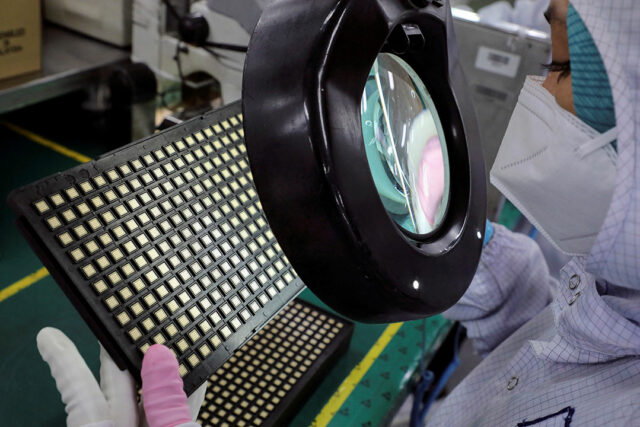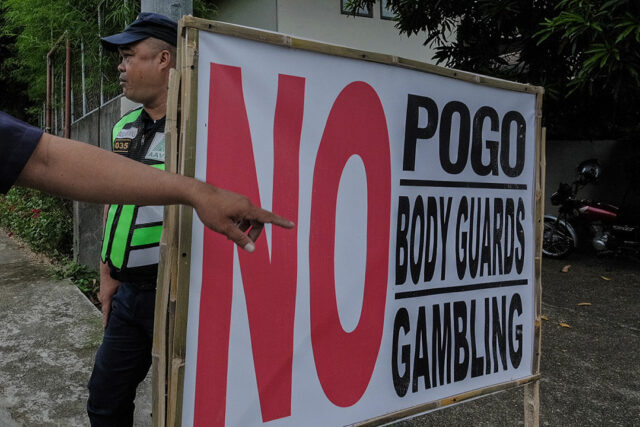By Kyle Aristophere T. Atienza, Reporter
THE ASIA-PACIFIC region faces the risk of an abrupt shift in United States trade policy in case of a Republican sweep in the US presidential elections in November, as a looming flat 10% tariff on all US imports threatens growth by making imports into the US more expensive, according to Moody’s Analytics.
But it expects “minimal retaliation” from the Philippines against potentially higher US tariffs given its strong defense ties with Washington.
“This would reduce shipping volumes and hurt business confidence,” Moody’s Analytics said of the tariff hike in a report released on Wednesday.
It expects minimal retaliation to higher US tariffs from most Asia-Pacific economies other than China.
It noted that China applies reciprocal tariffs roughly in line with the US, echoing outcomes in the 2018 trade war.
“But for the rest of the region, retaliation will be limited as so many economies rely heavily on the US for trade and security, either through formal treaties (notably Japan, South Korea, Thailand and Australia), defense partnerships (like the Philippines and Singapore), or implicit guarantees (like the Taiwan Relations Act),” it said.
It expects Japan and South Korea to implement minimal tariffs on goods such as cars, as well as low-end electronics and machinery.
“But no tariffs will be imposed on energy and food imports, given that both countries have to import these commodities,” according to the report. “Mid- to high-tier electronics are also exempt to protect IT-related economic security cooperation.”
George N. Manzano, who teaches political economy at the University of Asia and the Pacific, said the Philippines would be hurt by any across-the-board US tariffs.
“If the US decides to impose a tariff for all exporters, then those countries which have an existing free trade agreement with the US will benefit,” he said in a Viber message.
The Philippines has been pushing for a free trade deal with the US, but domestic politics prevents Washington from pursuing any new agreements.
Democrat Senator Christopher Coons told Philippine media in May that there were “strong opponents in both the Republican and the Democratic Party” to any new free trade deals.
Emy Ruth S. Gianan, who teaches economics at the Polytechnic University of the Philippines, said it would be difficult for Philippine producers to enter the US market once tariffs increase, which may “also increase the price of imported goods sold in our local markets.”
“Much of our imports and exports are food and retail goods, further impacting inflation,” she said in a Facebook Messenger chat.
A tit-for-tat trade sanctions between the US and China would also affect Philippine markets since “we rely heavily on these two economies,” she added.
The US, a major defense ally that has backed the Philippines in its sea dispute with China, is the largest destination for Philippine exports and the fifth-largest source of imports.
On Tuesday, the US Defense department said the Philippines would get $500 million (P29.3 billion) in military aid from Washington.
The aid will be funded by a national security package that the US Congress passed in April to boost the security of America’s partners, it said.
“Unless we guarantee stronger exports and domestic production to lessen importation, we stand to gain less from these measures,” Ms. Gianan said.
Rizal Commercial Banking Corp. Chief Economist Michael L. Ricafort said China might further boost economic ties with its neighbors such as the Philippines if its trade war with the United States intensifies.
“Higher US tariffs on Chinese imports and possibly on imports from other countries would lead to some increased sales/diversion to other Asian countries such as the Philippines, especially if another US-China trade war leads to slower growth for China and the global economy, as seen in the first Trump administration,” he said via Messenger chat.
Moody’s Analytics said policies that are likely to be adopted under a potential Republican win would “result in sharply lower output across the region,” while policies adopted in a Democratic sweep scenario would “result in better growth.”
It said most of the decline in output would occur in goods-producing industries such as electronics, machinery and automobiles. Service industries would also suffer, though to a lesser extent.












